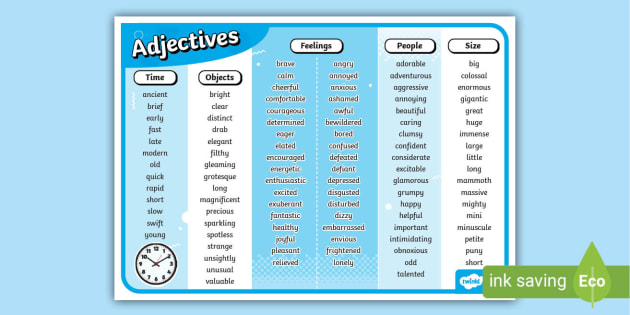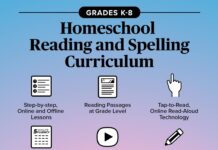
The Power of Words: Exploring Adjectives in the Classroom
In the world of education, words hold immense power. They have the ability to inspire, provoke thought, and affect one’s emotions. As educators, it is our responsibility to harness this power and create a positive and enriching learning environment for our students. One way to achieve this is by exploring the use of adjectives in the classroom. Adjectives, as descriptive words, can help to increase student engagement, improve writing skills, and deepen understanding across various subject areas. This article will delve into the importance of incorporating adjectives into teaching practices and provide practical strategies for doing so effectively.
Adjectives, by definition, add depth and detail to nouns. They go beyond basic identification and allow students to paint vivid pictures with their words. By encouraging students to use descriptive adjectives, we enable them to express their thoughts and emotions more effectively. For instance, instead of saying “I saw a bird,” students can be guided to say “I saw a magnificent red cardinal perched on a branch.” This use of adjectives adds color and vibrancy to their writing, making it more engaging and captivating.
When students actively employ adjectives, they not only enhance their language skills but also develop a more observant eye. By encouraging students to pay attention to detail and express it through descriptive language, we foster a sense of curiosity and encourage critical thinking skills. For example, in a science lesson about the solar system, students can be challenged to describe each planet using specific adjectives. By doing so, they not only gain a deeper understanding of the subject matter but also develop their analytical skills and attention to detail.
Furthermore, incorporating adjectives in the classroom can significantly improve students’ writing abilities. When students have a rich vocabulary of adjectives at their disposal, their writing becomes more engaging and persuasive. By utilizing adjectives to paint a vivid picture or convey a powerful emotion, students can capture the reader’s attention and make their writing come alive. Whether it’s a creative story or a persuasive essay, the use of adjectives adds depth and interest, making their writing stand out.
Teachers can employ several strategies to encourage the use of adjectives in the classroom. One effective method is to create adjective-themed activities. For example, a teacher can provide a variety of objects or images and ask students to come up with as many adjectives as possible to describe each one. This exercise not only expands students’ vocabulary but also encourages them to think critically and creatively. Additionally, teachers can incorporate adjective-themed games, such as “adjective bingo” or “adjective charades,” to make learning more interactive and enjoyable.
Another strategy is to provide students with engaging reading materials that showcase the power of adjectives. By exposing students to well-written literature, they can observe how adjectives are used effectively in conveying emotions, setting the scene, and describing characters. Teachers can select texts that are both enjoyable and challenging, encouraging students to analyze the use of adjectives and emulate such techniques in their own writing.
Furthermore, teachers can integrate adjectives into everyday classroom conversations. By incorporating rich language into discussions, teachers model the importance of using descriptive words in communication. For instance, during a class debate or discussion, the teacher can encourage students to express their opinions using adjectives that support their arguments. This practice not only strengthens their verbal skills but also instills in them the power of words in influencing others.
In conclusion, the use of adjectives in the classroom holds immense power. By employing descriptive language, educators can enhance student engagement, improve writing skills, and deepen understanding across various subject areas. By encouraging students to actively utilize adjectives, teachers foster critical thinking, expand vocabulary, and promote creativity. With the right strategies and practices, educators can harness the power of words and create a vibrant and enriching learning environment where students can thrive.
















